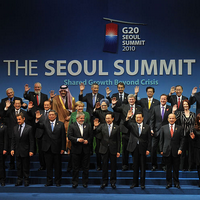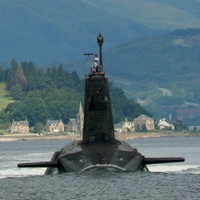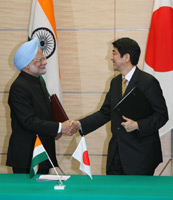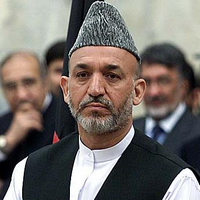Taiwanese President Ma Ying-jeou recently said that he would not conduct peace talks with mainland China without first holding a referendum. In an email interview, Richard Bush, a senior fellow at the Brookings Institution and director of its Center for Northeast Asian Policy Studies, reviewed the status of peace talks between China and Taiwan. WPR: What is the recent trajectory of cross-Strait relations, in terms of attitudes toward a final peace settlement? Richard Bush: Ever since Chiang Kai-shek and his armies were defeated on the Chinese mainland and retreated to Taiwan, the China-Taiwan relationship has been fraught with a degree […]
Latest Archive
Free Newsletter

As the leaders from the 20 largest developed and emerging economies gather this week in Cannes, France, observers will catalogue the difficulties in forging consensus around decisive steps to remedy global ills. To be sure, a roomful of the world’s most powerful leaders are bound to disagree about the causes and consequences of global economic instability and the arc of global order. But this G-20 summit will highlight another central challenge to coordinated international action: the rise of democratic powers that are ambivalent about the prevailing international order and have yet to decide whether to bolster it, replace it or […]

The sinking of the South Korean corvette Cheonan in March 2010 reignited global concerns over the proliferation of submarine technology. Although the total number of submarines in service worldwide has declined since the end of the Cold War, largely because of the disappearance of the Soviet navy and a reduction in U.S. forces, the number of countries operating relatively advanced submarines has increased. The People’s Liberation Army Navy (PLAN) in particular has expanded the size and sophistication of its undersea armada. At the same time, capabilities for fighting submarines have atrophied. Altogether, these trends suggest an alarming degree of uncertainty […]
After a campaign plagued by corruption allegations and violence — 41 candidates were murdered during recent months — the outcome of Colombia’s municipal elections last weekend paints the picture of a nation polarized between left-leaning pragmatists in urban centers and conservative elites clinging to countryside power. Perhaps most striking was the rise of Gustavo Petro, a former leftist guerilla, who was elected mayor of Bogota after running on an outspokenly “anti-corruption” platform. Petro’s victory, which comes on the heels of an intense public-works corruption scandal that landed the Colombian capital’s former mayor, Samuel Moreno, in jail in September, is particularly […]
The recent emergence of former TV presenter and democracy activist Buthaina Kemal as an outspoken female candidate for the Egyptian presidency is triggering discussion among international observers about the status of women in the nation’s political future. According to Valerie M. Hudson, a World Politics Review contributor and political scientist at Brigham Young University in Utah, Kemal’s candidacy is a vital pronouncement that “women do not intend to be kicked to the side of the road in Egyptian politics.” While her chances of winning may be minuscule, the very fact that Kemal is running represents “a push-back against a male […]
The number of pirate attacks off the coasts of Benin and Nigeria has reportedly dropped recently due to joint patrols by the two countries. In an email interview, Martin N. Murphy, senior fellow at the Atlantic Council’s Ansari Africa Center, discussed West African piracy.* WPR: What is the recent history of piracy off West Africa? Martin N. Murphy: Piracy has been a serious problem off Nigeria since the 1970s. Back then it was concentrated around the port of Lagos, where ships often sat at anchor for months waiting to unload. This came to an abrupt end in 1981 when the […]

An Indo-Japanese entente in Asia has been a much-discussed, but somewhat amorphous proposition — till now. China’s increasingly belligerent posture in the South China Sea and the perceived decline of overall U.S. influence has managed to focus minds in both Tokyo and New Delhi. Japan, in particular, is now quite keen to greatly expand maritime and defense cooperation as a part of a much deeper relationship. The emerging security partnership between the two Asian powers is underpinned by a larger geo-economic convergence of interests. Japan and India are both moving to put in place a strategic economic structure that can […]

One purpose of U.S. Secretary of State Hillary Clinton’s recently completed trip to Afghanistan and several of its neighbors was to secure the growing flow of Western military supplies entering Afghanistan through the Northern Distribution Network (NDN), which involves Tajikistan, Uzbekistan, Russia and other former Soviet republics. Another objective was to promote Afghanistan’s economic integration with the rest of Central Asia. Both tasks are difficult and essential, but we must not allow our urgent pursuit of the first to distract us from the long-term necessity of the second. The Central Asian countries have been logical partners to support the U.S.-led […]
